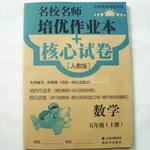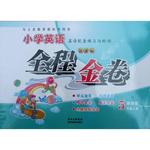题目内容
If there is one thing I’m quite sure about, it is that in a hundred years from now we still be reading newspapers. Not those newspapers are a necessity. Even now some people get most of the news from the television or have the radio switched on in the background or in the car. Many buy a paper only on Saturday or Sunday. But for most people a newspaper has become a habit passed down from generation to generation.
The basic British character won’t change, and one of the characteristics of the British is that we don’t much like talking to each other when we get up. So what better way is there to keep yourself thinking in the morning than to wrap yourself in a newspaper?
Over the past couple of centuries, human beings have developed a close relationship with the newspaper. It has become as natural as breathing or enjoying the sun. And it is not just the British who love newspapers. On suburban trains in Calcutta, for instance, just one person in the whole car will buy a newspaper and read aloud the best bits to his fellow passengers, much to everybody’s enjoyment.
The nature of what is news may change. What essentially (本质上) makes news is what affects our lives and the big political stories, the coverage of the wars, earthquakes and other disasters, will continue much the same. I think there will be more coverage of scientific research, though. It’s already happening in areas that may directly affect our lives, like genetic engineering. In the future I think there will be more coverage of scientific explanations of why we feel as we do, whether it’s love or depression. We develop a better understanding of how the brain operates and what our feelings really are.
It’s quite possible that in the next century newspaper will be transmitted electronically from the national equivalents of Fleet Street (伦敦的舰队街,以报馆集中而著称) and printed out in our own homes. In fact, I’m pretty sure that that is how it will happen in future. You’ll be probably selecting from a menu, making up your own bespoke newspaper by picking out the things you want to read and say. You might even have an intelligent screening device (装置) to do the job for you.
I think people have got it wrong when they talk about the competition between the different media. They actually have a relationship, feeding off each other. It was once predicted that television would kill off newspapers, which hasn’t happened. What is read on the printed page is more enduring (持久的) than pictures on a flickering screen or sound lost in the sky. And as for the Internet, it’s never really satisfying to read something just on a screen.
1.The author of the passage is most probably from _______________.
A.Russia B.India C.Britain D.America
2.According to the passage, the future of newspapers ____________.
A.will be mainly connected with scientific research
B.will report more important political activities
C.will directly cover more on scientific research
D.will build a bridge between different people
3.The underlined part “bespoke newspaper” of the passage probably refers to _____________.
A.a newspaper which dares to report the truth
B.a newspaper edited to one’s own interest
C.a newspaper edited and published for the public
D.a newspaper which only covers the life of family members
4.Which of the following is TRUE according to the passage?
A.It was centuries ago that newspapers came into being .
B.Televisions have taken the place of newspapers .
C.The Internet will gradually take the place of newspapers.
D.The nature of news may remain the same over generations.
1.C
2.C
3.B
4.A
【解析】
试题分析:本文主要讲述了未来报纸不但不会消失,而且还会有自己的新的变化和发展。
1.C 推理题。根据第二段1,2行The basic British character won’t change, and one of the characteristics of the British is that we don’t much like talking to each other when we get up.说明我们很可能就是英国人。故C项正确。
2.C 细节题。根据第五段3,4行In the future I think there will be more coverage of scientific explanations of why we feel as we do, whether it’s love or depression.说明C项正确。
3.B 推理题。根据You’ll be probably selecting from a menu, making up your own bespoke newspaper by picking out the things you want to read and say说明在未来我们可以按照自己想要读的看的内容来编自己要看的报纸,故该词是指符合自己兴趣的,故B正确。
4.A 推理题。根据第二段The basic British character won’t change, and one of the characteristics of the British is that we don’t much like talking to each other when we get up.说明读报纸是一个英国人保持很久的习惯,也说明了报纸已经存在了很久的时间了,故A正确。
考点:考查社会知识类短文阅读
点评:本文主要讲述了未来报纸不但不会消失,而且还会有自己的新的变化和发展。本文要求考生读懂文章中的每个句子的意思还要推理它们之间的关系,结合自己的生活常识和经验,再通过逻辑推理和判断,理解文章的言外之意,从而揭示文章的深层涵义。任何一篇文章都有其特定的写作目的,读者应当知道如何去做或按照某种方式传递思考问题。推理判断题的答案不可能在文章中直接找到,因此推理时我们务必要忠于原文,在文章中寻找并确定可推论的依据,即:已知部分-推论的前提,从中推测出未知部分-推理的结论,切忌妄加评论,把自己的观点当成作者的观点。

 名校名师培优作业本加核心试卷系列答案
名校名师培优作业本加核心试卷系列答案 全程金卷系列答案
全程金卷系列答案补全对话(共5小题,每小题1分,满分5分)
|
A. For every writer kissed by fortune, there are thousands more whose longing is never rewarded. B. What I did have was a friend who found me in my room in a New York apartment building. C. This is the shadow land of hope, and anyone with a dream must learn to live there. D. In most cases these people are dreaming of wealth and fame, not the long hours alone at a typewriter. E. It was so hard to sell a story that barely made enough to eat. |
Many a young person tells me he wants to be a writer. I always encourage such people, but I also explain that there's a big difference between "being a writer" and "writing".(61)________ "You've got to want to write," I say to them, "not want to be awriter."
The reality is that writing is a lonely, private and poorly-paid affair. (62)________ When I left a 20-year job in the US Coast Guard to become a writer, I had no hopes at all. (63)________ . It didn't even matter that it was cold and had no bathroom. I immediately bought a used typewriter and felt like a real writer.
After a year or so, however, I still hadn't gotten a break and began to doubt myself.(64)________ But I knew I wanted to write. I had dreamed about it for years. I wasn't going to be one of those people who die wondering "What if... ?" I would keep putting my dream to the test even though it meant living with uncertainty and fear of failure. (65)________ .